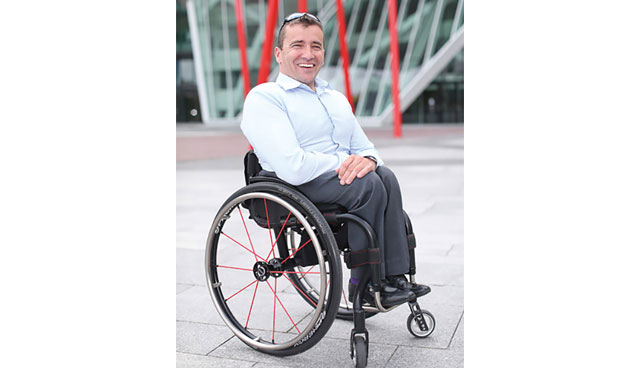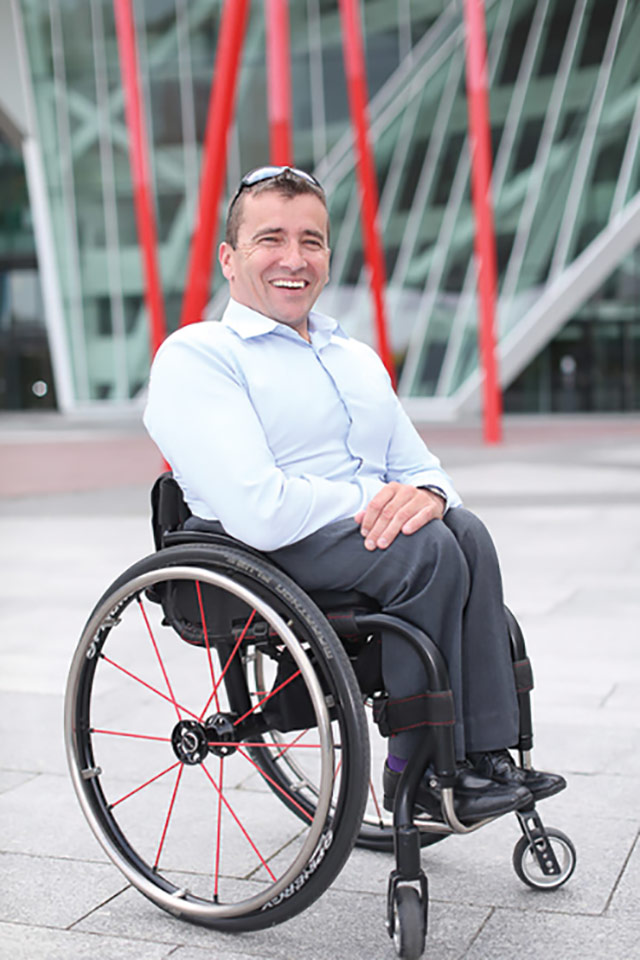More than sport

 John Fulham, four-time Paralympian and Communications Officer for Paralympics Ireland looks at the public appetite for the upcoming Rio games in light of the success of London and questions whether the legacy of the games has reached its true potential in changing attitudes to disability.
John Fulham, four-time Paralympian and Communications Officer for Paralympics Ireland looks at the public appetite for the upcoming Rio games in light of the success of London and questions whether the legacy of the games has reached its true potential in changing attitudes to disability.
What will be the legacy of the 2016 Rio Olympic Festival? Starting with the Olympic Games on 5 August, the marvel of this competition will continue beyond the Olympic extravaganza right up until 18 September with the closing ceremony of the Paralympic Games. Taking place amid controversies such as doping and political corruption, this is a critical time for sport. Rio will not resolve a lot of these issues but perhaps through the stories of personal achievement and sporting endeavour, we will be reminded of what sport means to us and why it is important.
In talking about the legacy of Rio, it may seem strange to start looking back to London and in particular, the Paralympic Games. Key to the legacy of London 2012 was the awakening of a worldwide consciousness to paralympic sport, recognition of athletes with disabilities competing at the highest level and a realisation that paralympic sport is as entertaining and professional as its Olympic counterpart.
For years, athletes with disabilities were in the shadows. Though their preparation and performance was equal to those in the able bodied world, recognition for their achievements was rarely given. In truth, this reflected common perception, bias or lack of thought shown towards people with disabilities across the world. Having participated in four Paralympic Games, I experienced first-hand the impact of this bias but with the advent of London 2012, I witnessed a true demonstration of equality. Public appetite to see elite sporting endeavour, overcame archaic perceptions. The Paralympic Games and more importantly, its athletes, had finally received true recognition.
London started a conversation, a conversation on why for so long public perception has judged those with varying or different abilities. A conversation on broader thinking and how, with a little bit of effort, the worlds of business, government, sport and entertainment could access untapped revenue and potential. In truth many people have been campaigning on such issues for years but London presented such a backdrop of positivity and energy, hopes for the future were high.
Four years on, what has been achieved, has this legacy realised its true potential? The fact that people look forward to the Olympic Festival continuing beyond 21 August is significant. Yet I look at the world around me knowing that I still do not have the dignity of using a toilet everywhere I go, should I be lucky enough to be able to access the building in the first place. Or when someone with a disability looks for employment, the people who London was supposed to inspire, still judge and are afraid to take that relatively simple next step.
Perhaps it is unfair to place such expectations on the Paralympic Games; after all it is purely a sporting event. The reality is however, whether we like it or not, a Paralympic Games is much more than sport. For anyone who has not seen Channel 4’s advertising campaign ‘We’re the Superhumans’, take the three minutes needed to view this in full. While personally not a fan of ‘Superhuman’ terminology, the content and what it represents is superb, easily applicable to each and every one of us.
Sport is a reminder that responsibility for achievement is personal but in working together, we can make things happen. Perhaps the legacy of Rio’s Olympics and Paralympics will be continued momentum, encouraging us to play our part in overcoming bias and discrimination, in whatever form that may take. As we watch the spectacle unfold, let Irish sporting success be an enjoyable reminder to thinking differently and being personally part of that making that legacy happen. Enjoy the Games.
The Rio Paralympic Games will take place from 7-18 September.
For further information visit:
www.paralympics.ie
www.followyourstar.ie
www.facebook.com/paralympicsireland
www.twitter.com/ParalympicsIRE
www.youtube.com/ParalympicsIRE





